Up In The Tree Written By Kawabata Yasunari. Here the main characters a girl and a boy named Michiko and Keisuke both fourth graders share a. UP IN THE TREE. One of Kawabatas last novels this story centersupon Oko Toshio who returns to Kyoto to hear the New Years bells andsee his former mistress Otoko after twenty four years. Where a broad river was about to meet the sea there on the bank is where Keisukes house was.
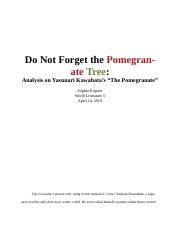 He Had Been Given The Pomegranate By Kimikos Mother But When They Made Eye Course Hero From coursehero.com
He Had Been Given The Pomegranate By Kimikos Mother But When They Made Eye Course Hero From coursehero.com
Kawabatas first success in writing was his novella The Izu Dancer. According to the author these short narratives are less concerned with plot than with describing momentary experiences and feelings that may have a wider meaning. A common theme in Kawabatas writing is loss and regret and his writing has been described as melancholy lyricism. Yasunari Kawabata Walking along the tile-roofed wall of the university I turned aside and approached the upper school. His novels were written in a free associative and unconventional style usually over long periods of. His father and mother both had health problems and both died of tuberculosis before Kawabata was three.
Yasunari Kawabata 14 June 1899 - 16 April 1972.
Japanese Fiction Writers 18681945. Ad ThriftBooks Has Saved 200 Million Used Books Through Reselling And Recycling. The Jay by Yasunari Kawabata 5 pages 1947 translated from Japanese by Lane Dunlop The Reading Life Japanese Literature Project Yesterday I read a great short story by Yukio MishimaThis morning I read another short story by one of the greats of 20th century Japanese Literature Yasunari Kawabata 1899 to 1972-Nobel Prize 1968. His novels were written in a free associative and unconventional style usually over long periods of. The original riverbank with its line of pine trees was a bit lower than the levee making the pines seem to belong to the garden of Keisukes. He thinks about his.
 Source: amazon.com
Source: amazon.com
Kawabatas first success in writing was his novella The Izu Dancer. The story ends with their separation. He had scrambled up into the tree. Yasunari Kawabata of the hand stories by yasunari kawabata but end up in malicious downloads. According to the author these short narratives are less concerned with plot than with describing momentary experiences and feelings that may have a wider meaning.
 Source: quotes.pub
Source: quotes.pub
Kawabatas first success in writing was his novella The Izu Dancer. He called these his tanagokoro no shosetsu palm-of-the-hand stories and said that they expressed the essence of his art. Shintaro and Masako love each other and they cannot live without each other. The Pomegranate by Kawabata Yasunari. Although the garden continued out to the river one could not see the flow of the river from the house because the levee was built a little high.
 Source: rajksite.com
Source: rajksite.com
In 1968 he became the first Japanese to receive the Nobel Literature Prize. Prostitutes abandoned wives and children. According to the author these short narratives are less concerned with plot than with describing momentary experiences and feelings that may have a wider meaning. Nobel Lecture 12 December 1968. Palm-of-the-Hand Stories Kawabata Yasunari.
 Source: goodreads.com
Source: goodreads.com
Reviewed by Karen Kao. Kawabatas first success in writing was his novella The Izu Dancer. Where the thick trunk branched out near the top the two could sit comfortably. Kimiko had felt that she was in the presence of life. There is a big one up above she called from the veranda.

Shintaro and Masako love each other and they cannot live without each other. The original riverbank with its line of pine trees was a bit lower than the levee making the pines seem to belong to the garden of Keisukes. His novels were written in a free associative and unconventional style usually over long periods of. How can it be he ponders that they had never noticed that before even though theyd always looked in that direction. Japanese Fiction Writers 18681945.
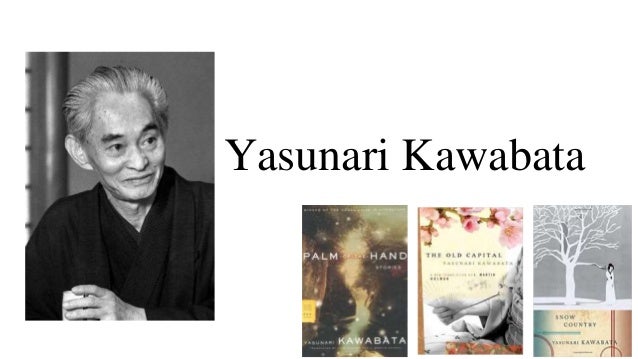 Source: slideshare.net
Source: slideshare.net
Where the thick trunk branched out near the top the two could sit comfortably. Yasunari Kawabata 14 June 1899 - 16 April 1972. His characters were ordinary people. Its a bit like the famous story A Row of Trees by the Japanese writer Yasunari Kawabata. Yasunari Kawabata novels were set in environments depicting loneliness emptiness symbolizing unsatisfied yearning and transient or unattainable love with a backdrop of wild and beautiful nature.
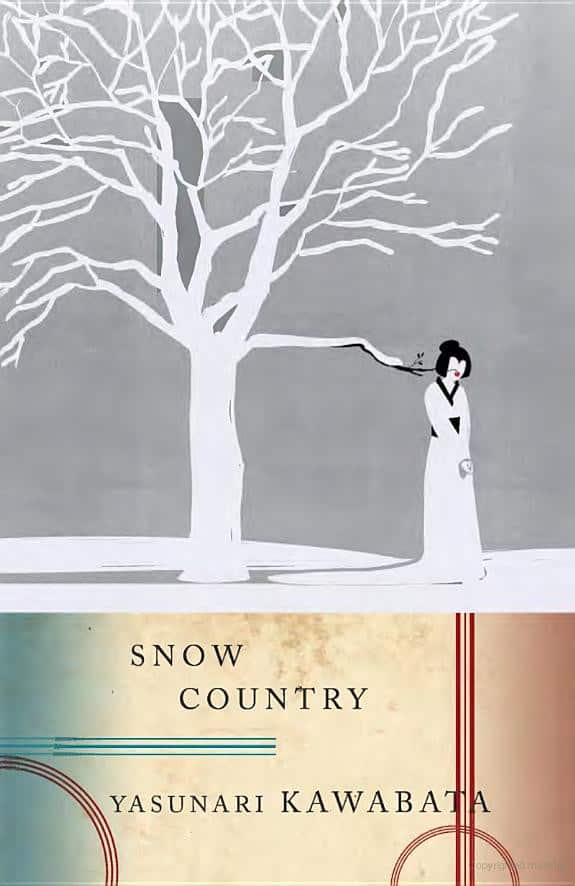 Source: preining.info
Source: preining.info
Yasunari Kawabata 川端 康成 Kawabata Yasunari 11 June 1899 16 April 1972 was a Japanese novelist and short story writer whose spare lyrical subtly-shaded prose works won him the Nobel Prize for Literature in 1968 the first Japanese author to receive the award. But if I pick it I cant get back down. This Palm-of-the-Hand story was written in 1945 by Yasunari Kawabata the first Japanese writer to win the Nobel Prize in literature. A man asks his wife if she has noticed that half the ginkgo trees on the road are bare. How can it be he ponders that they had never noticed that before even though theyd always looked in that direction.
 Source: prezi.com
Source: prezi.com
He called these his tanagokoro no shosetsu palm-of-the-hand stories and said that they expressed the essence of his art. The original riverbank with its line of pine trees was a bit lower than the levee making the pines seem to belong to the garden of Keisukes. A man asks his wife if she has noticed that half the ginkgo trees on the road are bare. Walking more slowly and. Behind the white board fence of the school playground from a dusky clump of bushes under the black cherry trees an insects voice could be heard.
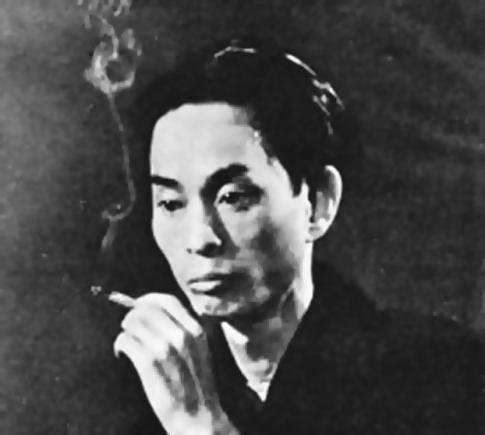 Source: klosi.com
Source: klosi.com
The Pomegranate by Kawabata Yasunari. The secret of their being up in the tree had continued for almost two years now. Kawabata Yasunari was born in 1899 and committed suicide in 1972. One of Kawabatas last novels this story centersupon Oko Toshio who returns to Kyoto to hear the New Years bells andsee his former mistress Otoko after twenty four years. The Jay by Yasunari Kawabata 5 pages 1947 translated from Japanese by Lane Dunlop The Reading Life Japanese Literature Project Yesterday I read a great short story by Yukio MishimaThis morning I read another short story by one of the greats of 20th century Japanese Literature Yasunari Kawabata 1899 to 1972-Nobel Prize 1968.
 Source: en.wikipedia.org
Source: en.wikipedia.org
His father and mother both had health problems and both died of tuberculosis before Kawabata was three. The original riverbank with its line of pine trees was a bit lower than the levee making the pines seem to belong to the garden of Keisukes. Yasunari Kawabata 川端 康成 Kawabata Yasunari 11 June 1899 16 April 1972 was a Japanese novelist and short story writer whose spare lyrical subtly-shaded prose works won him the Nobel Prize for Literature in 1968 the first Japanese author to receive the award. He had scrambled up into the tree. His works have enjoyed broad international appeal and are still widely read.
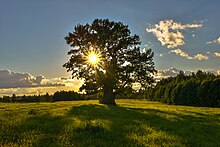 Source: en.wikiquote.org
Source: en.wikiquote.org
1968 Nobel Prize in Literature Presentation Speech. There is a big one up above she called from the veranda. In the story Immortality by Kawabata Yasunari. Yasunari Kawabata was born in Osaka in 1899. Yasunari Kawabata 14 June 1899 - 16 April 1972.
 Source: pinterest.com
Source: pinterest.com
Walking more slowly and. 1968 Nobel Prize in Literature Presentation Speech. This entry was expanded by Gessel from his Kawabata entry in DLB 180. Yasunari Kawabata was born in Osaka in 1899. Start your 48-hour free trial to unlock this Yasunari Kawabata study guide.

Kawabata Yasunari was born in 1899 and committed suicide in 1972. UP IN THE TREE. His father and mother both had health problems and both died of tuberculosis before Kawabata was three. Yasunari Kawabata 14 June 1899 - 16 April 1972. How can it be he ponders that they had never noticed that before even though theyd always looked in that direction.
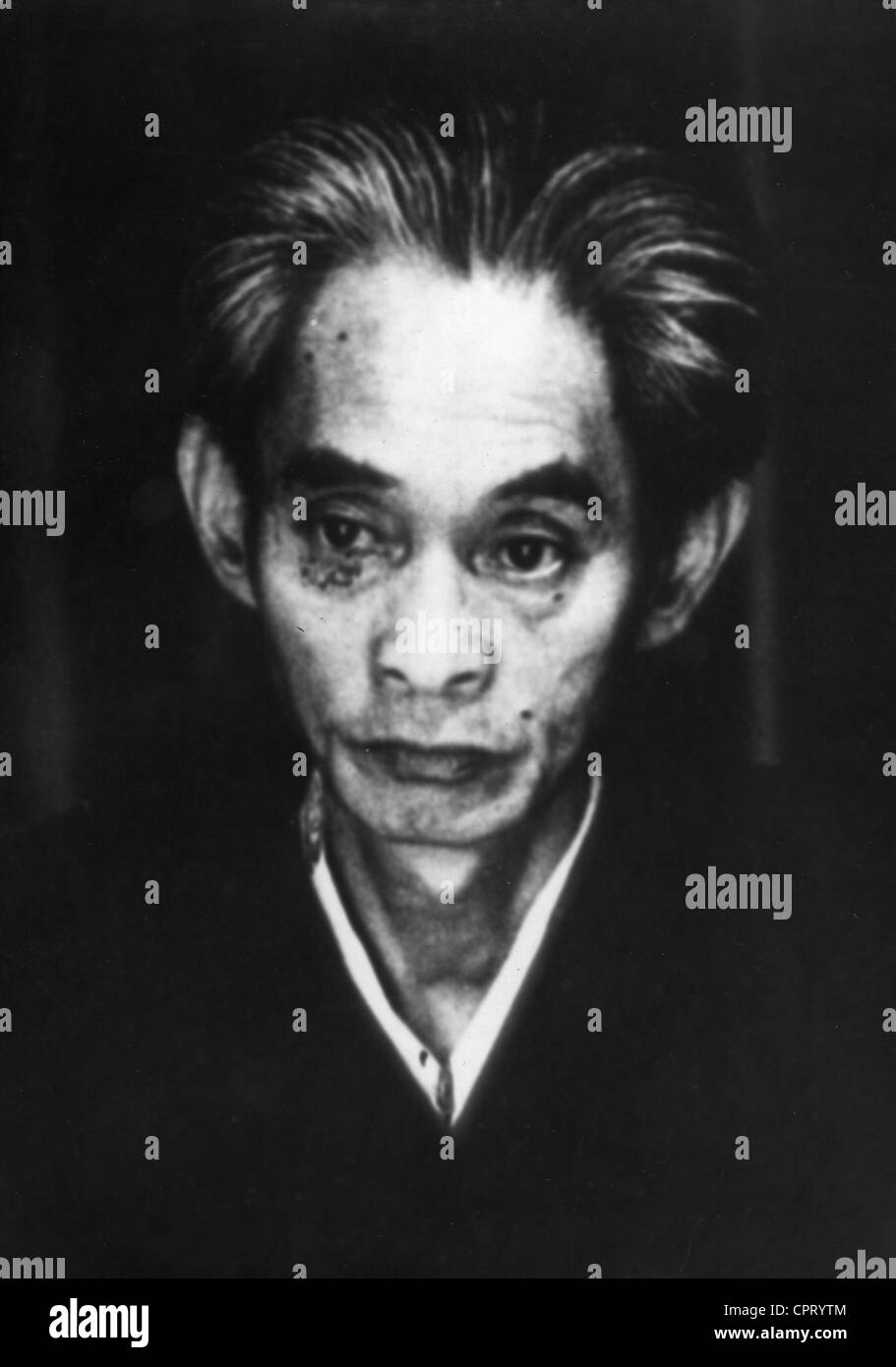 Source: alamy.com
Source: alamy.com
Shintaro and Masako love each other and they cannot live without each other. Where a broad river was about to meet the sea there on the bank is where Keisukes house was. Palm of the hand stories by yasunari kawabata is available in our book collection an online access to it is Page 226. Here the main characters a girl and a boy named Michiko and Keisuke both fourth graders share a. Kawabatas first success in writing was his novella The Izu Dancer.

Start your 48-hour free trial to unlock this Yasunari Kawabata study guide. Yasunari Kawabata of the hand stories by yasunari kawabata but end up in malicious downloads. The Pomegranate by Kawabata Yasunari. Kawabata Yasunari was born in 1899 and committed suicide in 1972. Where a broad river was about to meet the sea there on the bank is where Keisukes house was.
 Source: coursehero.com
Source: coursehero.com
The original riverbank with its line of pine trees was a bit lower than the levee making the pines seem to belong to the garden of Keisukes. Up in the Tree. His father and mother both had health problems and both died of tuberculosis before Kawabata was three. In the story Immortality by Kawabata Yasunari. Yasunari Kawabata novels were set in environments depicting loneliness emptiness symbolizing unsatisfied yearning and transient or unattainable love with a backdrop of wild and beautiful nature.
 Source: goodreads.com
Source: goodreads.com
Gessel Brigham Young University. Yasunari Kawabata 川端 康成 Kawabata Yasunari 11 June 1899 16 April 1972 was a Japanese novelist and short story writer whose spare lyrical subtly-shaded prose works won him the Nobel Prize for Literature in 1968 the first Japanese author to receive the award. He had scrambled up into the tree. Yasunari Kawabata Walking along the tile-roofed wall of the university I turned aside and approached the upper school. Yasunari Kawabata of the hand stories by yasunari kawabata but end up in malicious downloads.
 Source: theteddyrosebookreviewsplusmore.com
Source: theteddyrosebookreviewsplusmore.com
Yasunari Kawabata novels were set in environments depicting loneliness emptiness symbolizing unsatisfied yearning and transient or unattainable love with a backdrop of wild and beautiful nature. His family was an old family but not very well-off. Where the thick trunk branched out near the top the two could sit comfortably. He watched Japan open itself to the world indulge in dreams of empire and survive the ensuing firestorm. One of Kawabatas last novels this story centersupon Oko Toshio who returns to Kyoto to hear the New Years bells andsee his former mistress Otoko after twenty four years.










